Haz clic aquí para leer en español
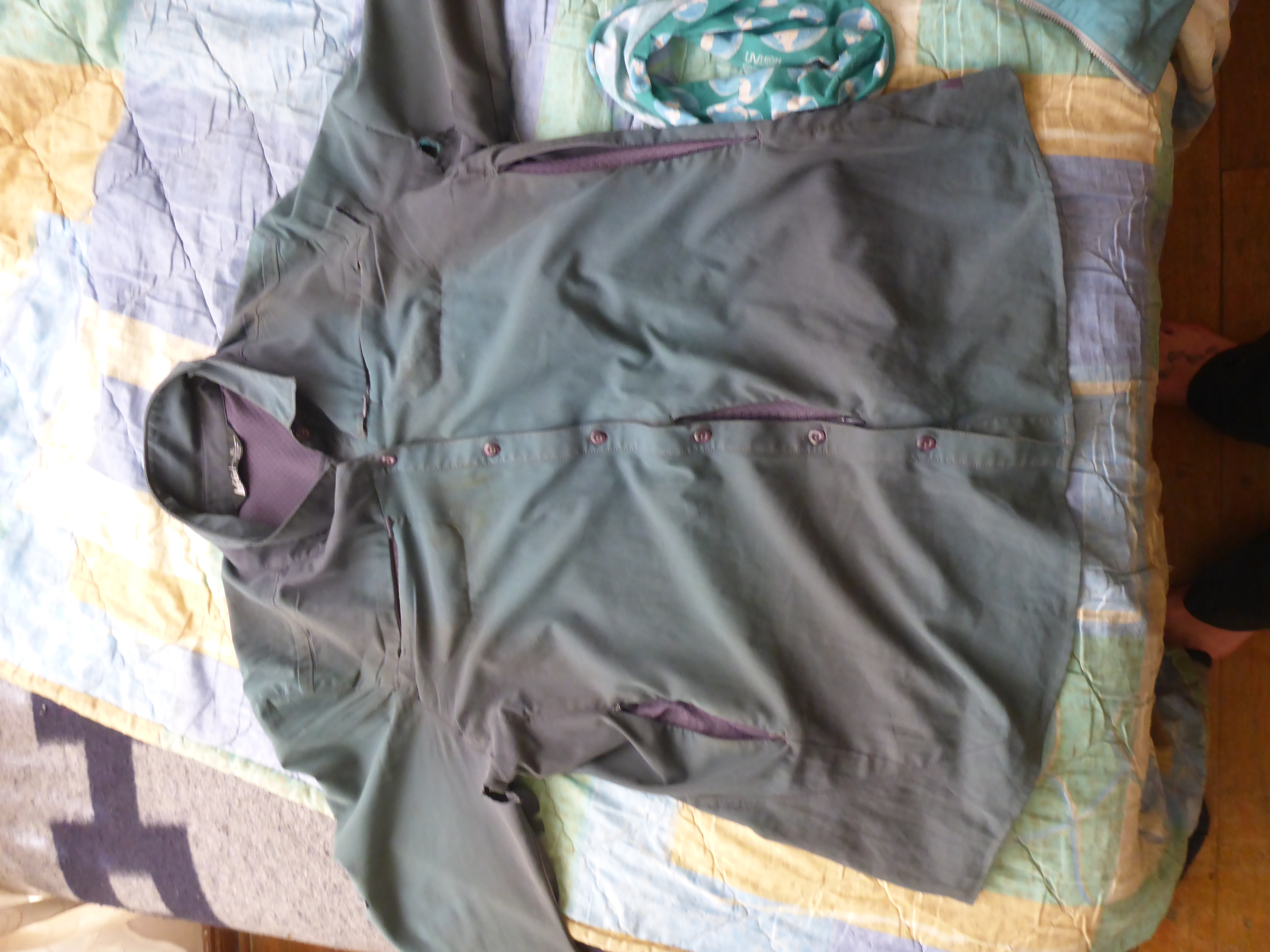
*Part 2*
Read Part 1 Here
Our shoes are cracked and breaking open, as are our lips. The bruises on our hips and the mold in our drinking hoses seem to be permanent. Our clothes and spirits sag from constant and demanding use. We have retired pieces which did not hold up to the test, from shirts to relationships.
Our bodies have lost inches. I specify losing inches because neither of us are sure if she has lost weight, per se. Previous experiences on long trails is that we lose fat but build muscle, and so weight can even out, IF you know how to maintain sufficient caloric intake. When I hiked the PCT, I lost 40 lbs. While people at home congratulated me on how “good” I looked, internally I was thinking, “my body literally had to eat herself. Does this make me auto-cannibalistic? Am I a cannibal now?”
We are now just over 7,500 km (5,000 mi) total into this walk. 5,000 km (3,000 mi) and 12 months into this 13 month leg of it. Low body fat has meant prolonged cold weather is particularly dangerous, especially in remote regions at 14,000 ft in snow storms. Not only does the body need to be monitored and maintained, but so do the spirit and energy, or your best tools for success can become a liability. Matters like body image, pride, and objectives can be just as destructive as constructive.
From our daily check-ins and monthly goal setting sessions, our position is clear: we are weary but steady as we move toward a much needed break and chance to regroup and heal. Essentially what I am getting at in this piece, as a follow up to last week, is that long-adventuring sucks and adapting to and weathering that is one of its most powerful and under-celebrated aspects. Your laundry routine is my searing nerve pain; both are routine and eventually make us want to scream.
Long adventures are an easy notion to romanticize. Life defying feats, surviving on wits and kind strangers, far-flung adventures through remote lands. Where everything is different from doldrum life. What many books and movies fail to relay about grand adventures is the hard, repetitive, grind of daily survival. The tales which you probably couldn’t bear to read because they are boring.
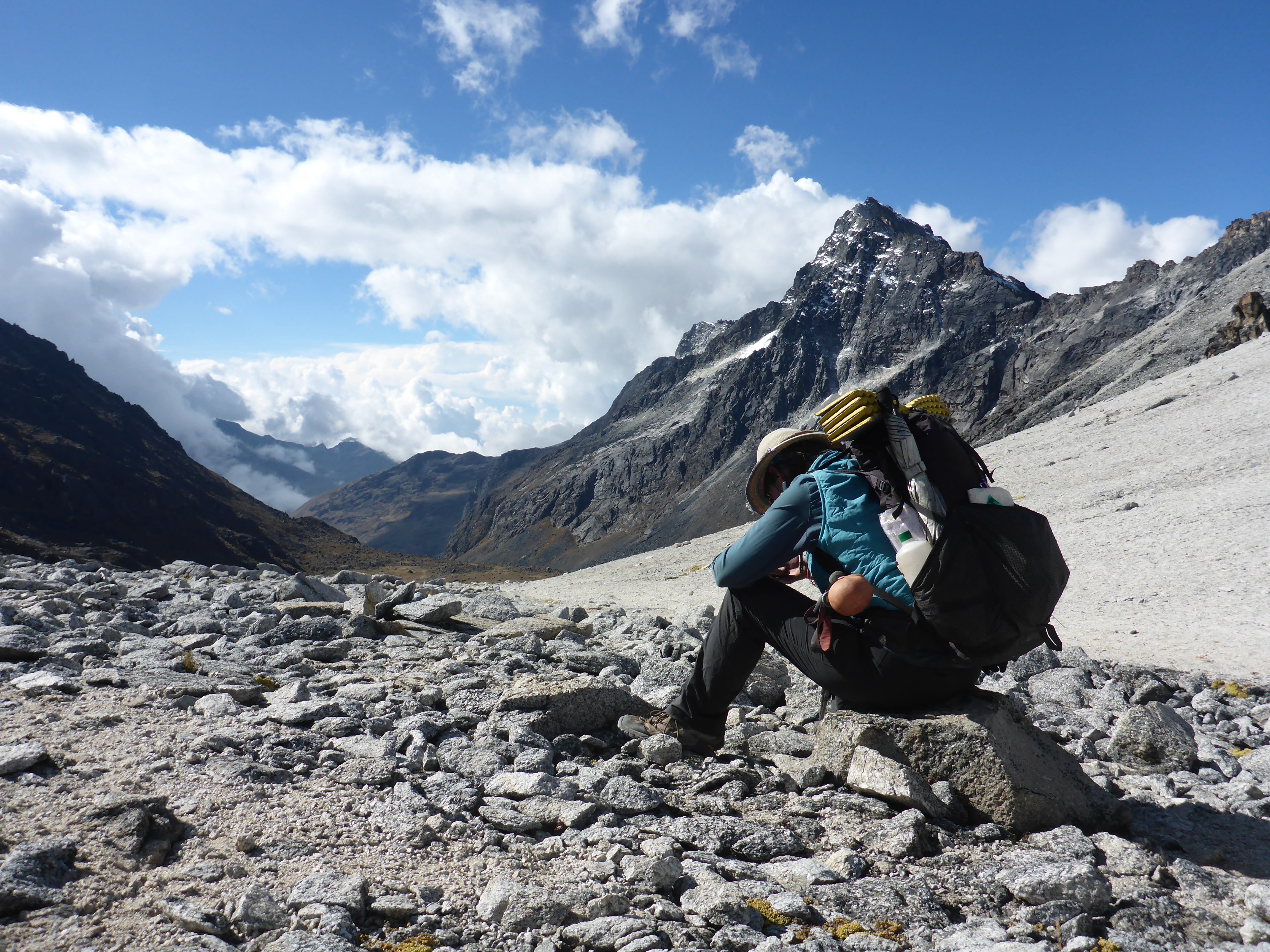
Routine will find you here or there, routine will find you anywhere. While human adaptability is how we have come to populate almost every corner of this globe, it also means the mundane creeps into even the most exotic or exciting sounding places and ventures. It is why many of us so often run away from our daily lives, to vacation, to a new trail, to something DIFFERENT. But, given time, anything becomes prosaic. Therein lies one of the truly greatest challenges of a long adventure.
Most thru-hikers and other long-wanderers know, a protracted adventure is 50% physical and 50% mental, because the wear and struggles don’t go away, and no one cares or wants to hear about them. No one is impressed by it or wants to buy the book or movie rights to something like that.
Yet, in that lies one of the greatest strengths of what we are doing. Connecting our undertaking with that of each person we meet, because we all struggle. And for some of the indigenous people who live in these mountains, seeing two gringas being chased by a lightning storm across the pampas, when you lost your brother three months ago to a lightning strike, engenders a sense of camaraderie and collusion.
We are not walking across a continent because we are exceptional. We are walking across a continent because we are tough, experienced, committed, and believe that seeing this through is how we can contribute our particular skill-sets to improving our lot as a race on this planet. We are able to walk across continents because we have each of you, an amazing support system. In the end, we hope this journey reaffirms that people accomplish astonishing things not just by being exceptional but also by not giving up.
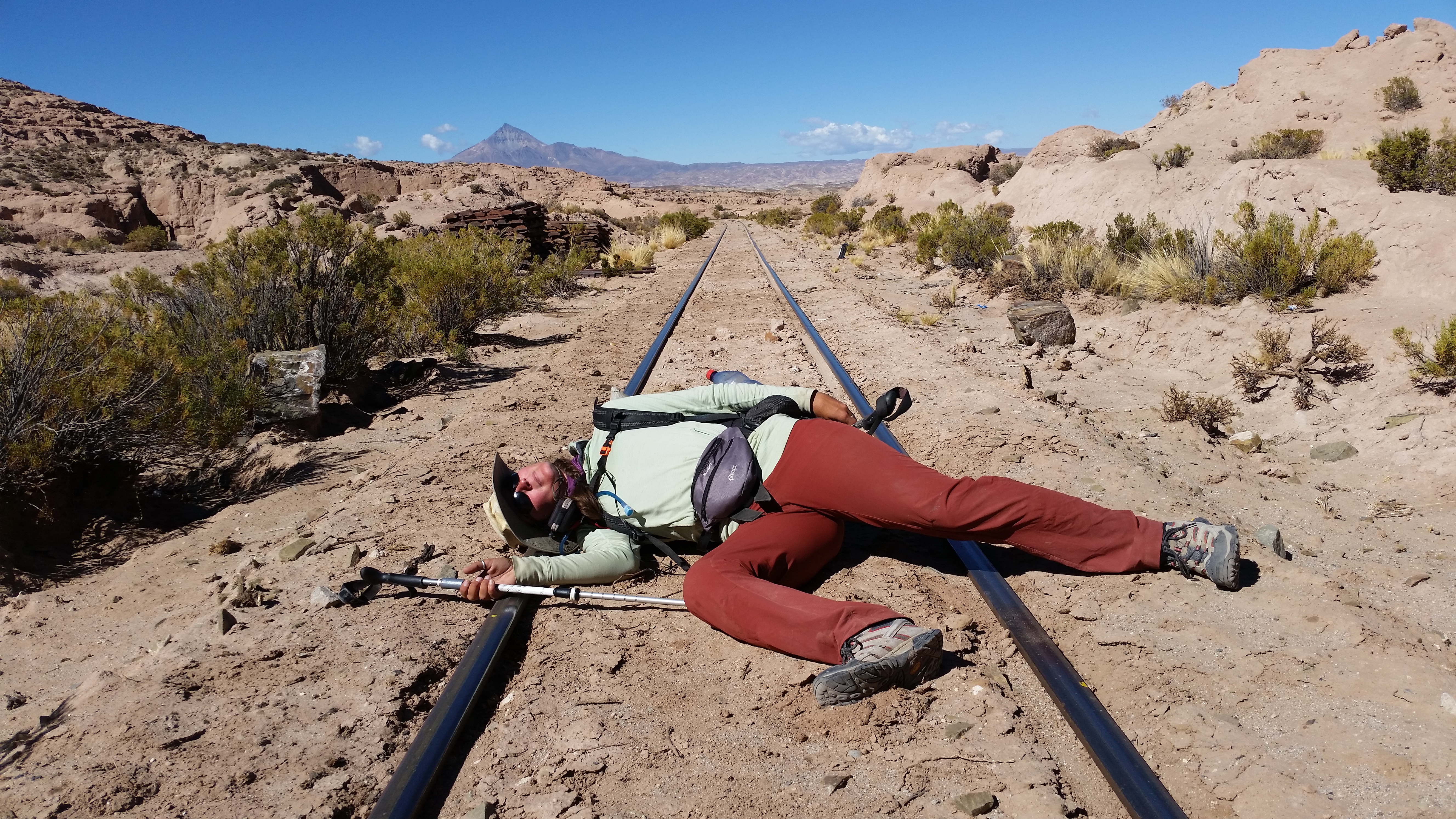
Being an explorer, like being a parent, an entrepreneur, a stay at home spouse, is a lot of difficult, thankless work. It wears on mind and soul. Which forces you push yourself to seek deeper, to engage and wring meaning from the mundane routines, both of pain and delight. It is there, in those fleeting instants, that no matter which path you are on, what tools you have at your disposal, or when and where you are, there exists growth and fulfillment which defies explanation. An intrinsic part of the human condition. The only difference is where we go looking.
So, yeah, sometimes walking sucks. We spend a fair amount of time getting lost, feeling uncertain, wrestling with whether to listen to or override our fears; we are hungry most of the time and anonymous almost all of the time. But it is worth it, for talking to kids about brushing their teeth, and telling one neighbor a good story about the nation next door.
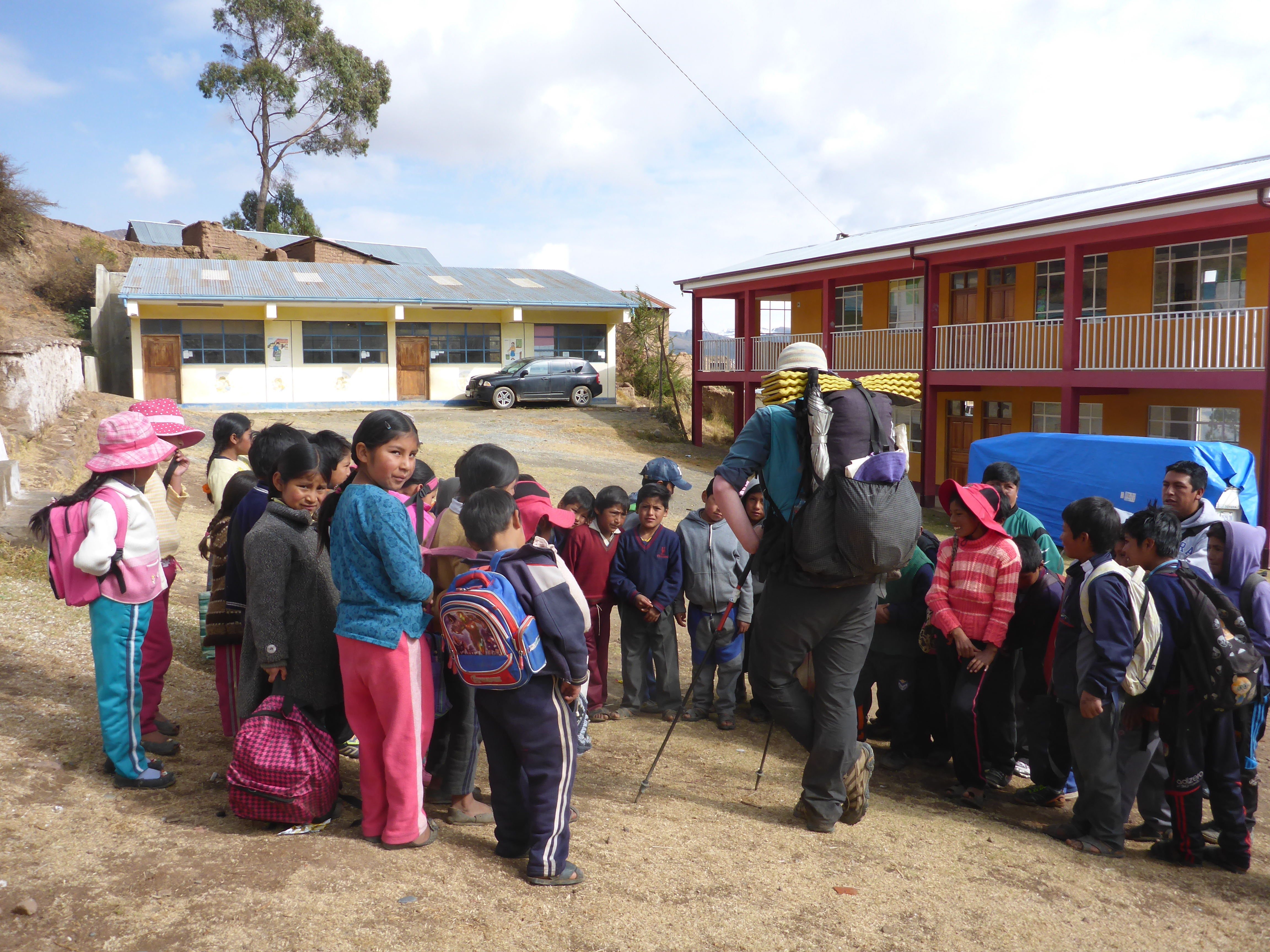
One of the deepest wells from which I draw strength is knowing that if I can live out my dream of walking across a continent, you can certainly achieve yours. Or at least, fold your laundry. For that, count yourself lucky because at this point my pants and socks stand up on their own.
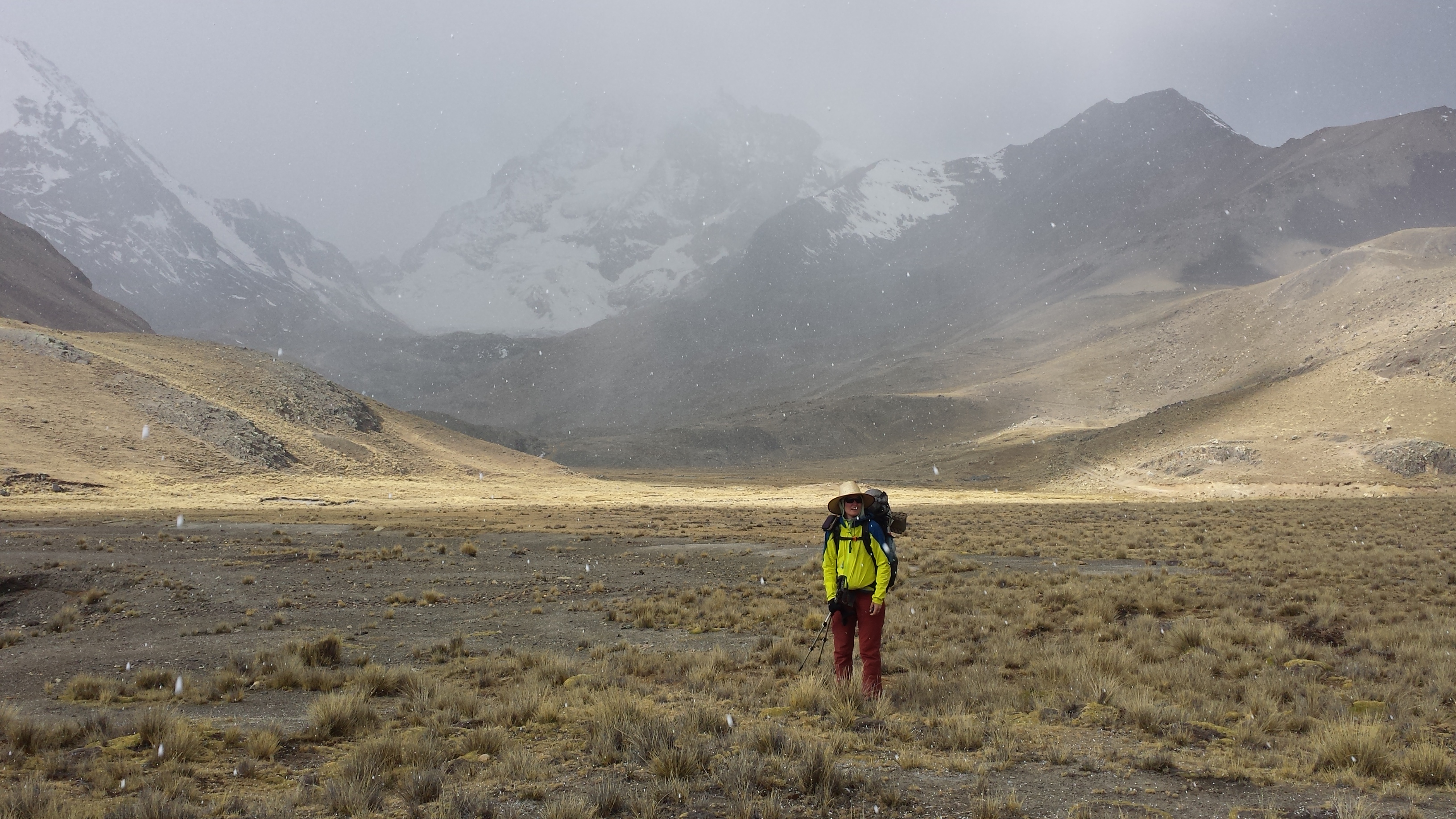
Aventuras -A veces apesta
Escrito por Fidgit
Traduccion por Henry Tovar

*Parte 2*
Nuestros zapatos están agrietados y abiertos, al igual que nuestros labios. Los moretones en nuestras caderas y el moho en nuestras mangueras para beber parecen ser permanentes. Nuestra ropa y nuestros espíritus se hunden de un uso constante y exigente. Tenemos piezas retiradas que no resistieron la prueba, desde camisetas hasta relaciones.
Nuestros cuerpos han perdido pulgadas. Especifico perder pulgadas porque ninguno de nosotros está seguro de si ha perdido peso, per se. Las experiencias anteriores en los senderos largos son que perdemos grasa pero desarrollamos músculo, por lo que el peso puede igualarse, SI usted sabe cómo mantener un aporte calórico suficiente. Cuando fui de excursión al PCT, perdí 40 libras. porque no lo hice Mientras que las personas en casa me felicitaban por lo “bueno” que parecía, internamente estaba preocupado, pensando: “mi cuerpo literalmente tuvo que comer ella misma para caminar 2,663 millas”.
Ahora estamos a poco más de 7,500 km (5,000 mi) en esta caminata. 5,000 km (3,000 mi) y 12 meses en esta etapa de 13 meses. La baja grasa corporal ha significado que el clima frío prolongado es particularmente peligroso, especialmente en regiones remotas a 14,000 pies en tormentas de nieve. No solo el cuerpo necesita ser monitoreado y mantenido, sino también el espíritu y la energía, o sus mejores herramientas para el éxito pueden convertirse en una responsabilidad. Asuntos como la imagen corporal, el orgullo y los objetivos pueden ser tan destructivos como constructivos.
Desde nuestros registros diarios y sesiones de fijación de metas mensuales, nuestra posición es clara: estamos cansados ??pero constantes a medida que avanzamos hacia un descanso muy necesario y la posibilidad de reagruparnos y sanar. Esencialmente, a lo que me refiero en esta pieza, como seguimiento de la semana pasada, es que la aventuras de larga aventura apesta y se adapta a la intemperie, que es uno de sus aspectos más poderosos y menos celebrados. Tu rutina de lavandería es mi dolor de nervio abrasador de las puntas de mis pies; ambos nos hacen querer gritar.
Las largas aventuras son una idea fácil de idealizar. Hazañas que desafían la vida, que sobreviven con ingenio y extraños amables, aventuras lejanas a través de tierras remotas. Donde todo es diferente de la vida Doldrum. Lo que muchos libros y películas no transmiten sobre las grandes aventuras es la rutina dura y repetitiva de la supervivencia diaria. Los cuentos que, bueno, probablemente no podrías soportar leer, ¡porque sería aburrido!

La rutina lo encontrará aquí o allá, la rutina lo encontrará en cualquier lugar. Si bien la adaptabilidad humana es la forma en que hemos llegado a poblar casi todos los rincones de este mundo, también significa que lo mundano se arrastra hasta en los lugares y aventuras más exóticos o emocionantes. Es por eso que muchos de nosotros a menudo huimos de nuestra vida cotidiana, de vacaciones, a un nuevo sendero, a algo diferente. Pero, con el tiempo, todo se vuelve prosaico. Ahí radica uno de los mayores desafíos de una larga aventura.
La mayoría de los excursionistas y otros viajeros largos saben que una aventura prolongada es 50% física y 50% mental, porque el desgaste y las dificultades no desaparecen, y a nadie le importa o quiere saber de ellos. Nadie está impresionado por eso o quiere comprar el libro o los derechos de película de algo que TODOS experimentamos.
Sin embargo, en eso reside una de las mayores fortalezas de lo que estamos haciendo. Conectando nuestra empresa con la de cada persona que conocemos, porque todos luchamos. Y para algunos de los pueblos indígenas que viven en estas montañas, ver a dos gringas luchando, huyendo de una tormenta eléctrica en las pampas abiertas, cuando perdiste a tu hermano hace tres meses por un rayo, engendra una nueva sensación de camaradería y colusión.
No estamos caminando por un continente porque somos excepcionales. Estamos caminando por un continente porque somos duros, experimentados, comprometidos y creemos que al ver esto podemos contribuir con nuestro conjunto de habilidades particulares para mejorar nuestra suerte como raza en este planeta. Podemos caminar por los continentes porque tenemos a cada uno de ustedes, un increíble sistema de apoyo. Al final, esperamos que este viaje reafirme que las personas logran cosas asombrosas no solo por ser excepcionales sino también por no rendirse.

Ser un explorador, como ser un padre, un emprendedor, un cónyuge de quedarse en casa, es un trabajo difícil e ingrato. Se desgasta en mente y alma. Con qué fuerzas te esfuerzas para buscar más profundamente, para captar y extraer el significado de los momentos, tanto del dolor como del deleite. Es allí, en esos instantes fugaces, que no importa cuál es el camino que se encuentra, las herramientas que tiene a su disposición, o cuándo y dónde se encuentra, no existe crecimiento y realización, que desafía la explicación. Una parte intrínseca de la condición humana. La única diferencia es a dónde vamos buscando.
Entonces, sí, a veces caminar apesta. Pasamos una gran cantidad de tiempo perdiéndonos, sintiéndonos inseguros, luchando con la posibilidad de escuchar o anular nuestros miedos; estamos hambrientos la mayor parte del tiempo y anónimos casi todo el tiempo. Pero vale la pena, por hablar con los niños sobre cepillarse los dientes y contarle a un vecino una buena historia sobre la nación de al lado.

Uno de los pozos más profundos de los que saco fuerzas es saber que si puedo vivir mi sueño de caminar por un continente, ciertamente puedes alcanzar el tuyo. O al menos, dobla tu ropa. Para eso, cuente con suerte porque en este punto mis pantalones y calcetines pueden pararse solos.

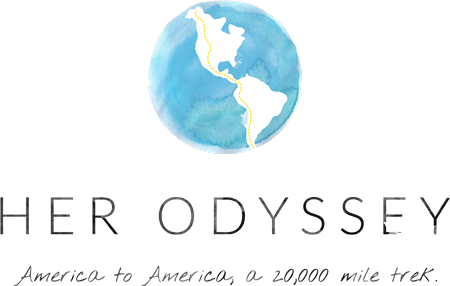

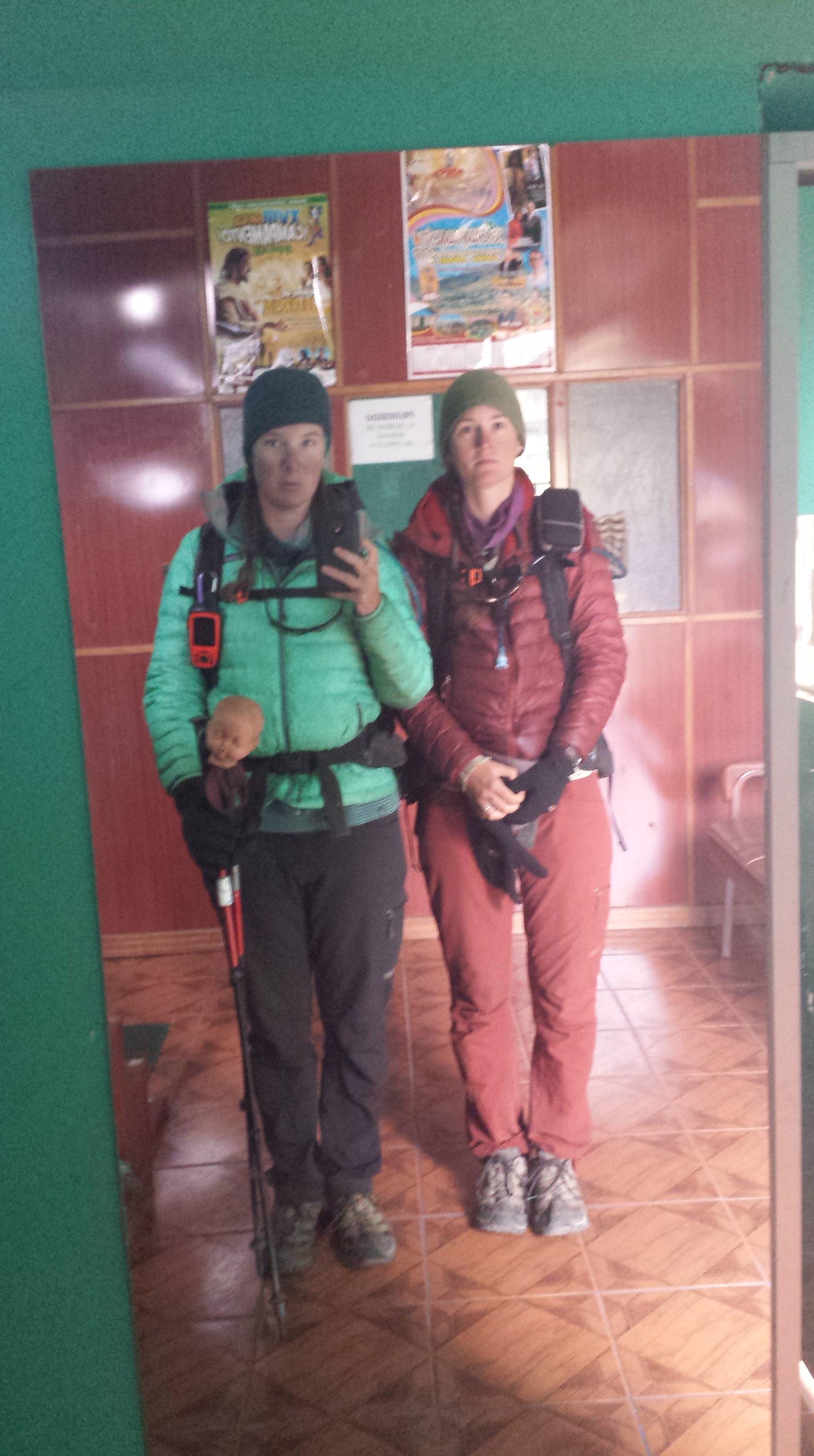
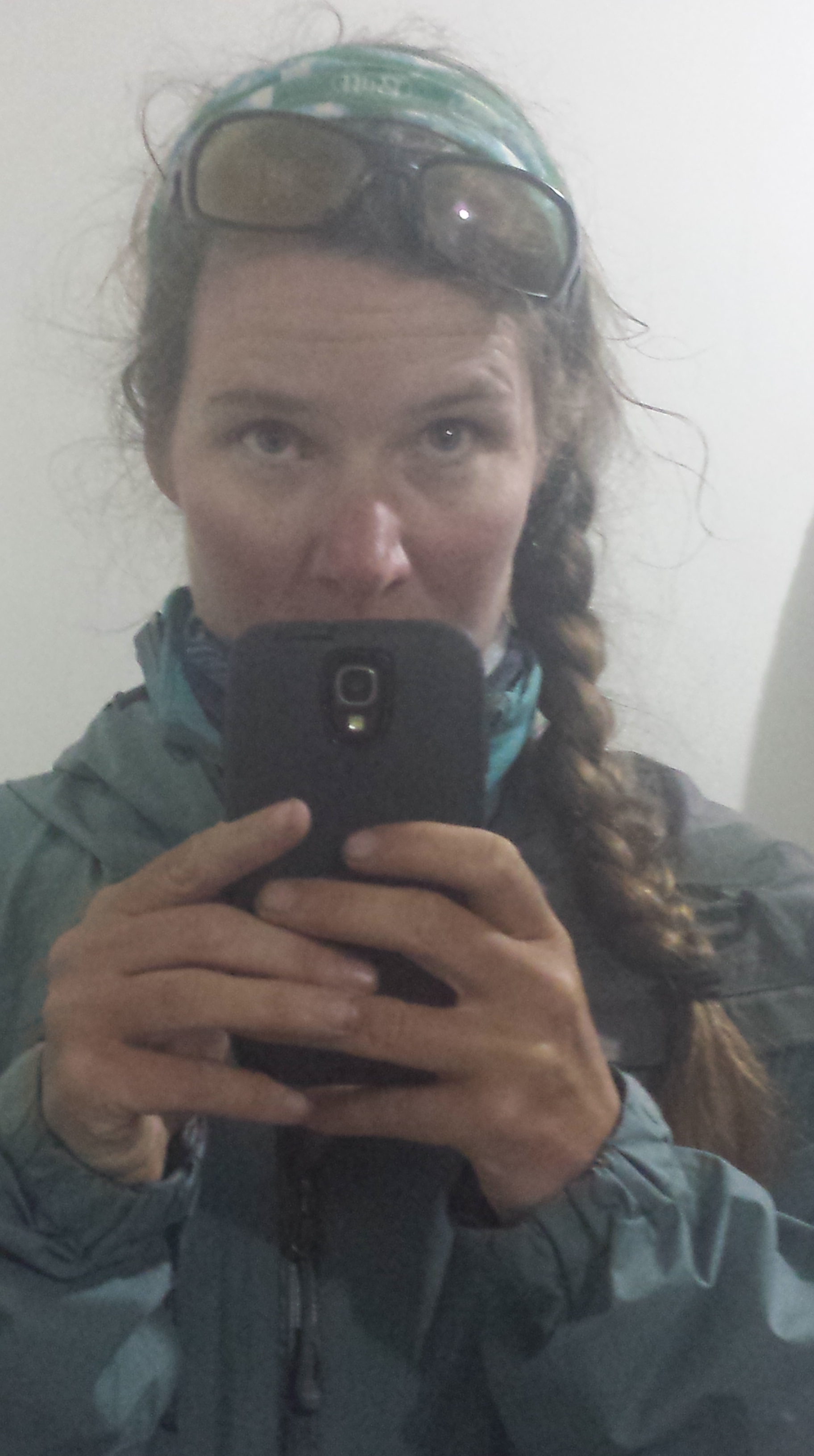
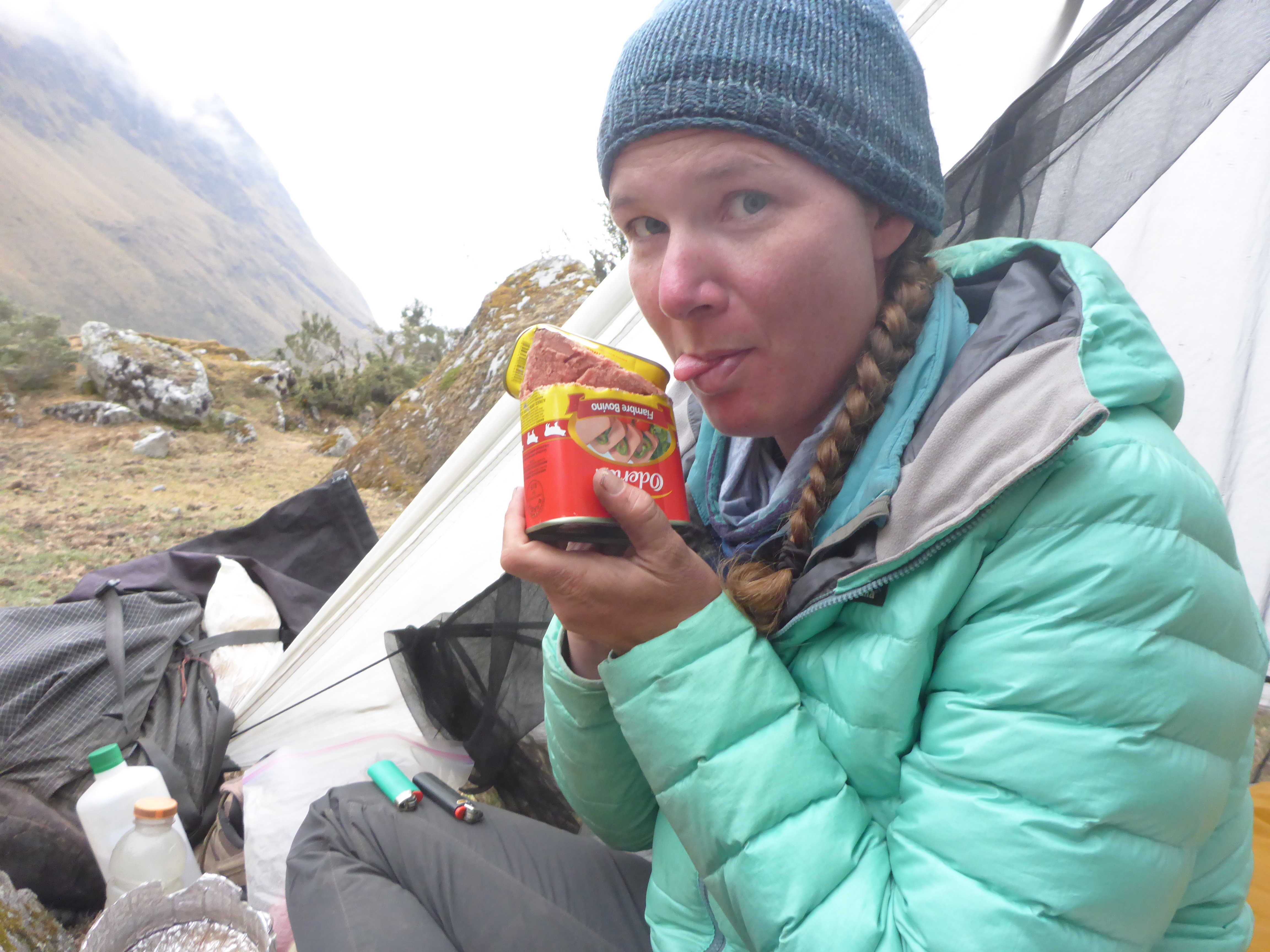
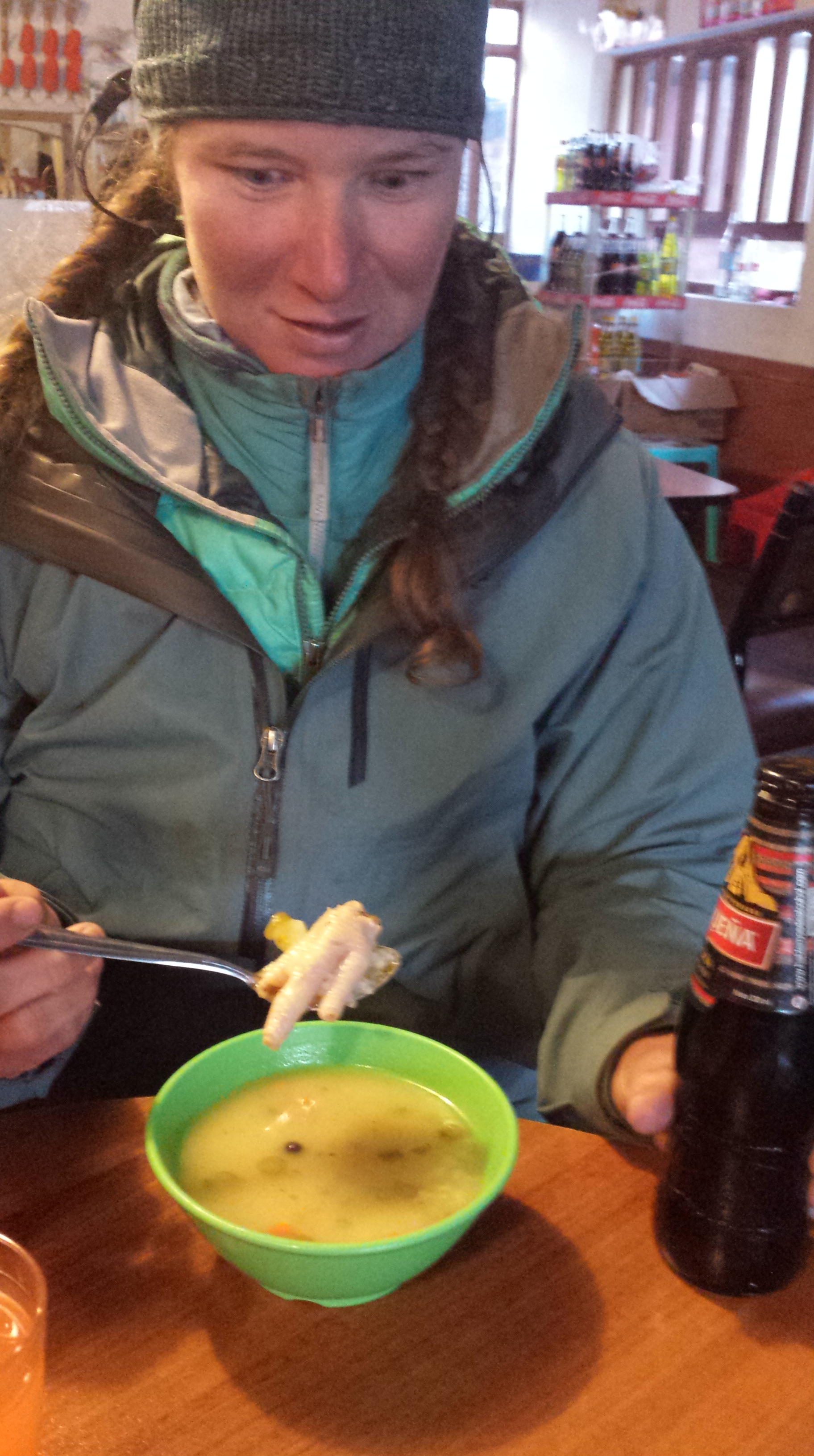
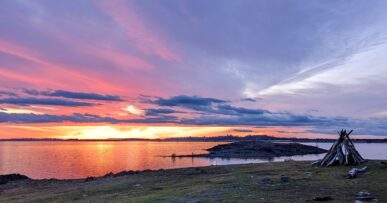
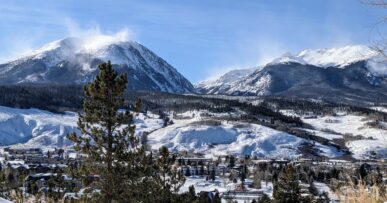
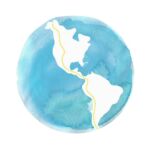

Comments (8)
Such a great use of words up there! See you in the USA soon. What are your favorite foods?
Love reading your thoughts on all that this journey brews inside your brain. Keep em coming.
I am so glad you are struggling because it is making my laundry pile look better and better every second right now. My life is so so boring and no one would want to know about my struggles. I almost set up my tent in my back woods the other night because I needed the hard ground and the wind. Your challenge will be figuring out how to make sure you don’t break apart or rot or freeze or dehydrate or get too mentally fragile. Keep on the sunny side. You are doing something meaningful and reaching a really great conclusion- it doesn’t matter if someone cares or not about the truth. Speak it anyways.
your wise reflections help me to appreciate “true grit” and perseverance for the long haul.
We admire your honesty both about the beauty and the tiresome of your journey. Thanks for sharing with such candor.
I’ve kept my Philmont shirt for over 35 years. Not as usable as it once was, but has an ineffable value.
great post!
Great post. I love it, however, I challenge the notion that: “Most thru-hikers and other long-wanderers know, a protracted adventure is 50% physical and 50% mental, because the wear and struggles don’t go away, and no one cares or wants to hear about them.” There is a small group of dedicated readers of our stories about walking consisting of those folks that wish they could be out there with you and the rest of us hiker-trash, at least in fantasy, and walk away from all the crap, and now there is even more of it coming our way. After all, the motto of hiking the Continental Divide National Scenic Trial is “Embrace the Brutality” ! How about another motto? Don’t let the rat of doubt nibble away at your resolve.” Keep moving! Yes.
This is a very valid point, Uncle Tom. It has been the committed and encouraging followers who, just knowing they are out there, give me the gumption to hike on some days.
Thank you for bringing it back to a place of gratitude.